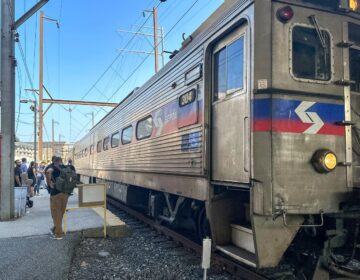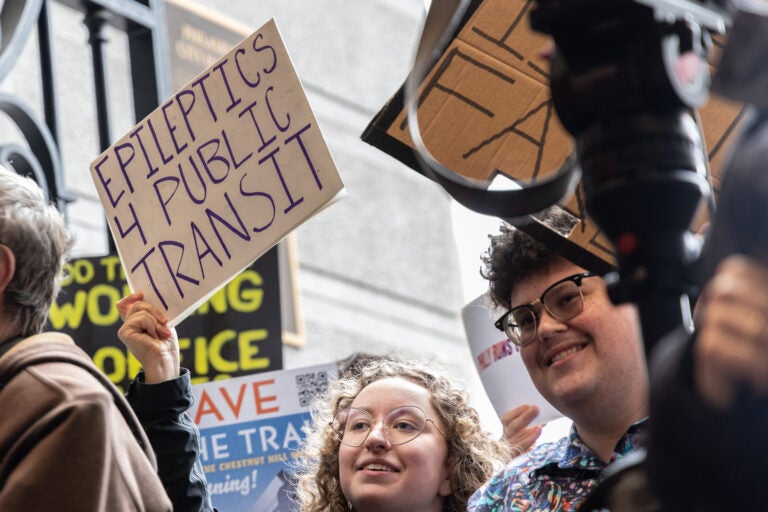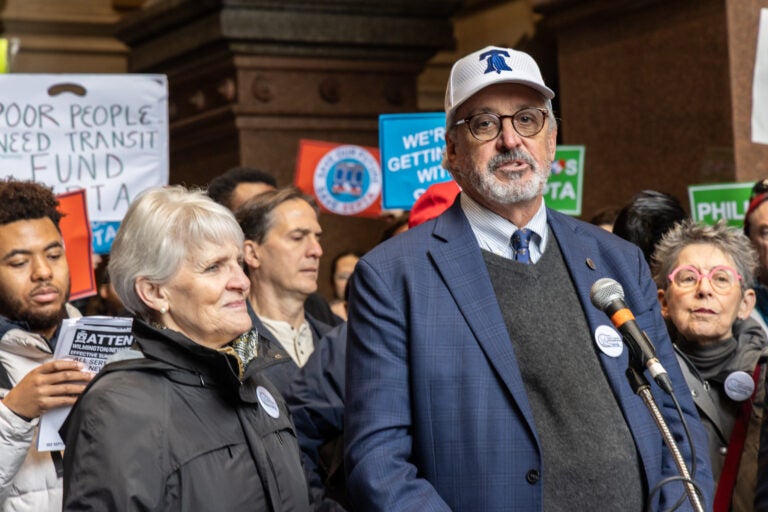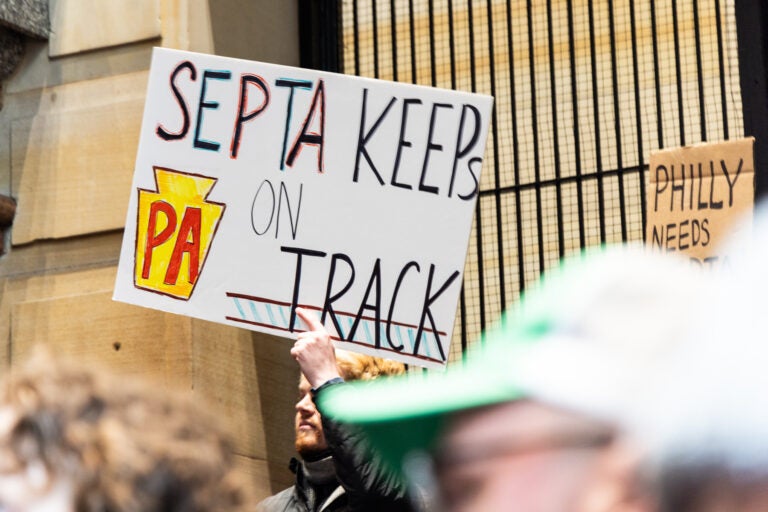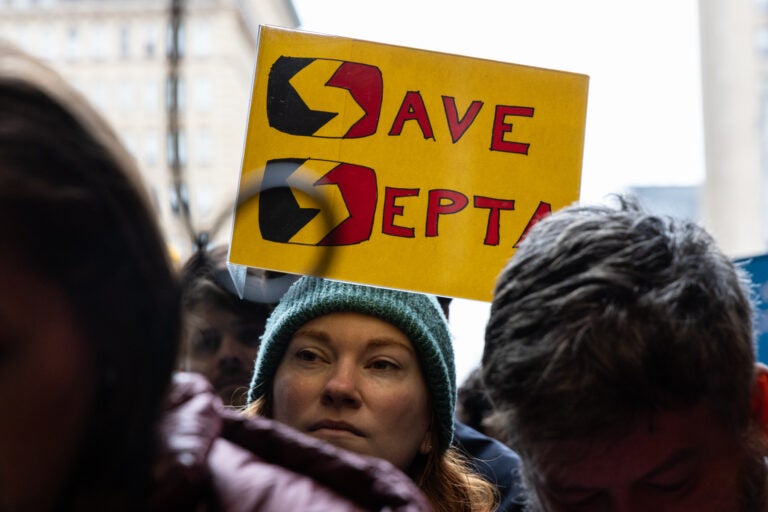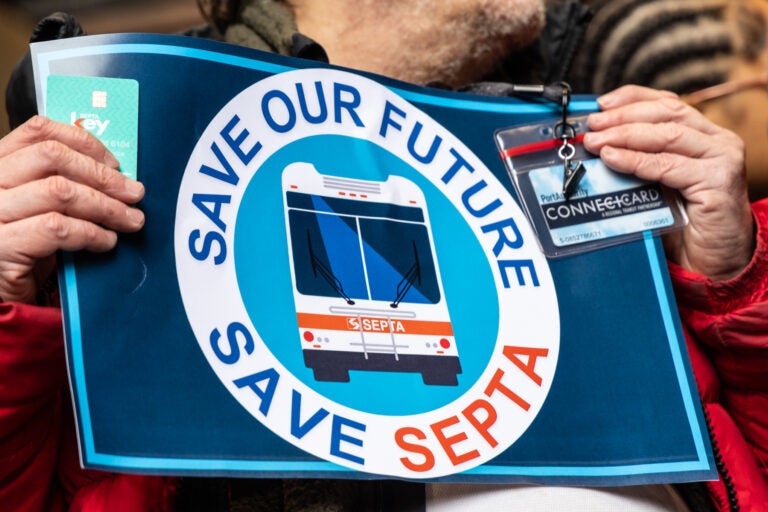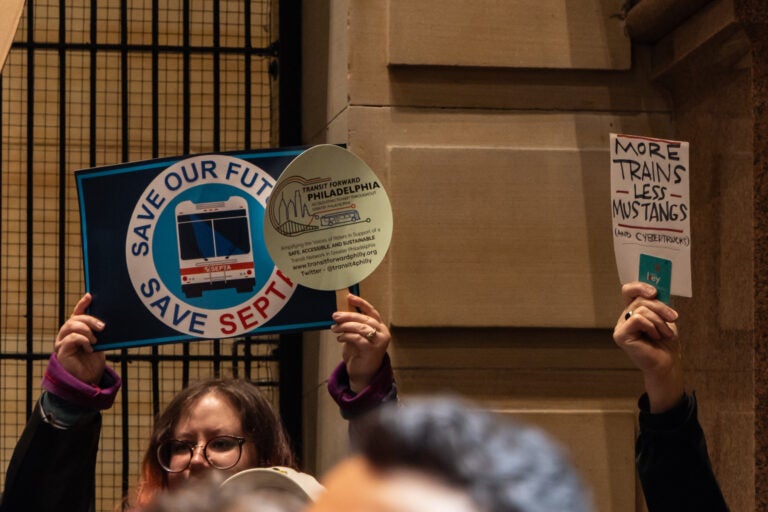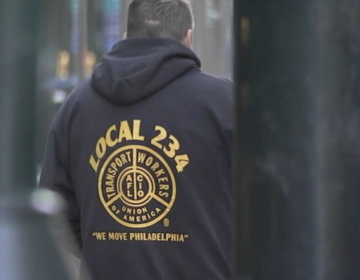Transit system in ‘crisis’: SEPTA supporters rally at Philadelphia City Hall against ‘death spiral’ of proposed service cuts
Local politicians, transit workers and everyday riders expressed concern over the proposed cuts and called for more funding to cash-strapped SEPTA.
From Philly and the Pa. suburbs to South Jersey and Delaware, what would you like WHYY News to cover? Let us know!
Hundreds gathered at Dilworth Plaza Friday morning for the “We’re Not Getting There Without SEPTA” rally, voicing their opposition to proposed cuts and fare increases by the public transit agency.
State Sen. Nikil Saval, D-Philadelphia, led the group in a chant: “No cuts. No way. We ride SEPTA every day.”
“We are clear-eyed about what brings us together today,” Saval told the crowd under the north arch of City Hall. “The future of our communities, of our city, of our entire region, are dependent on SEPTA. We stand at the edge of service cuts and fair hikes that will tumble into a cascading death spiral that advocates and officials have warned about for so long.”
The rally, occurring just one day after SEPTA announced what many are calling a “doomsday” budget, brought together a coalition of transit workers, elected officials and riders facing what Saval described as “the deadly seriousness” of a crisis that threatens to reshape life in America’s sixth-largest city.
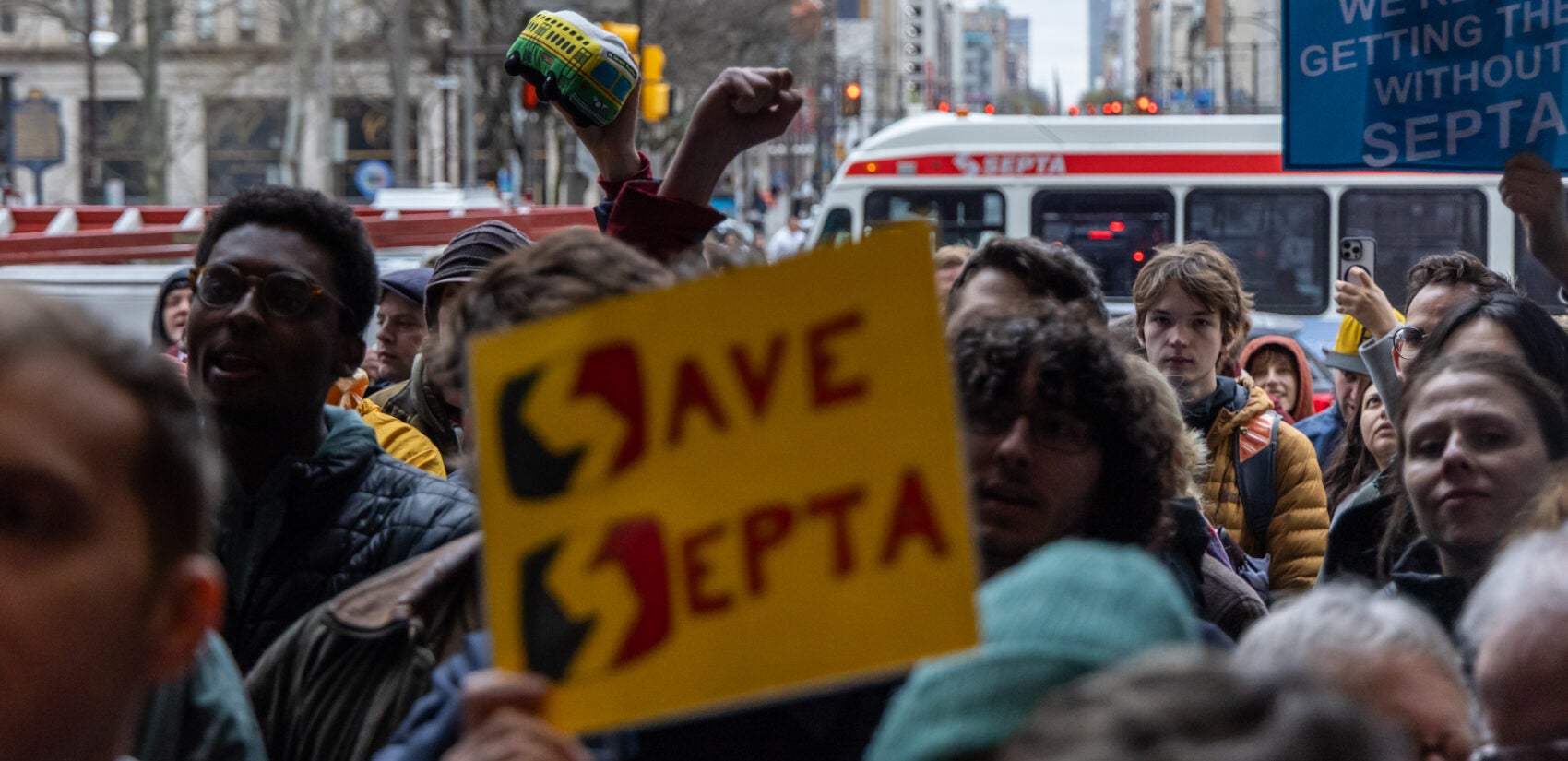
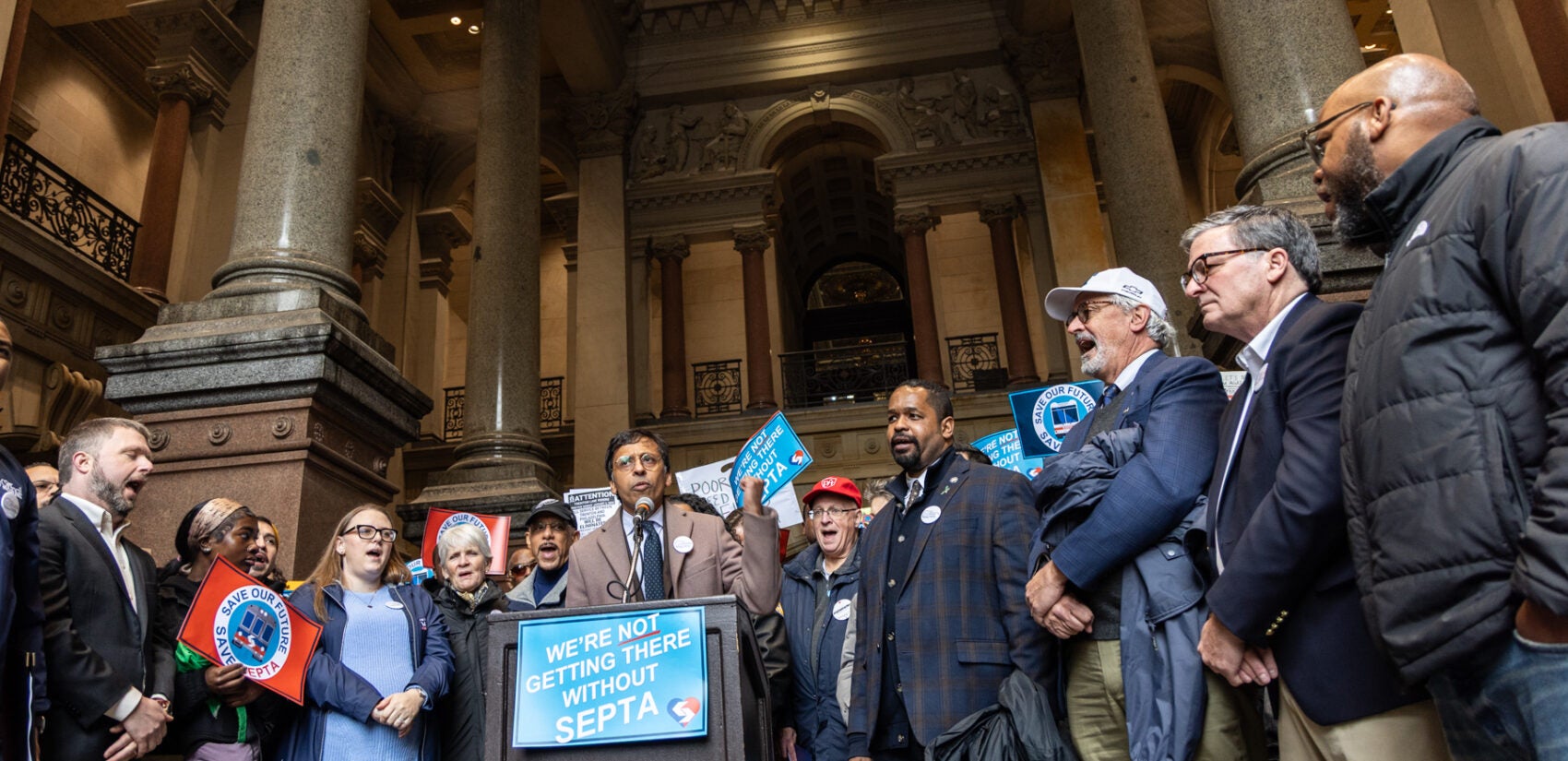
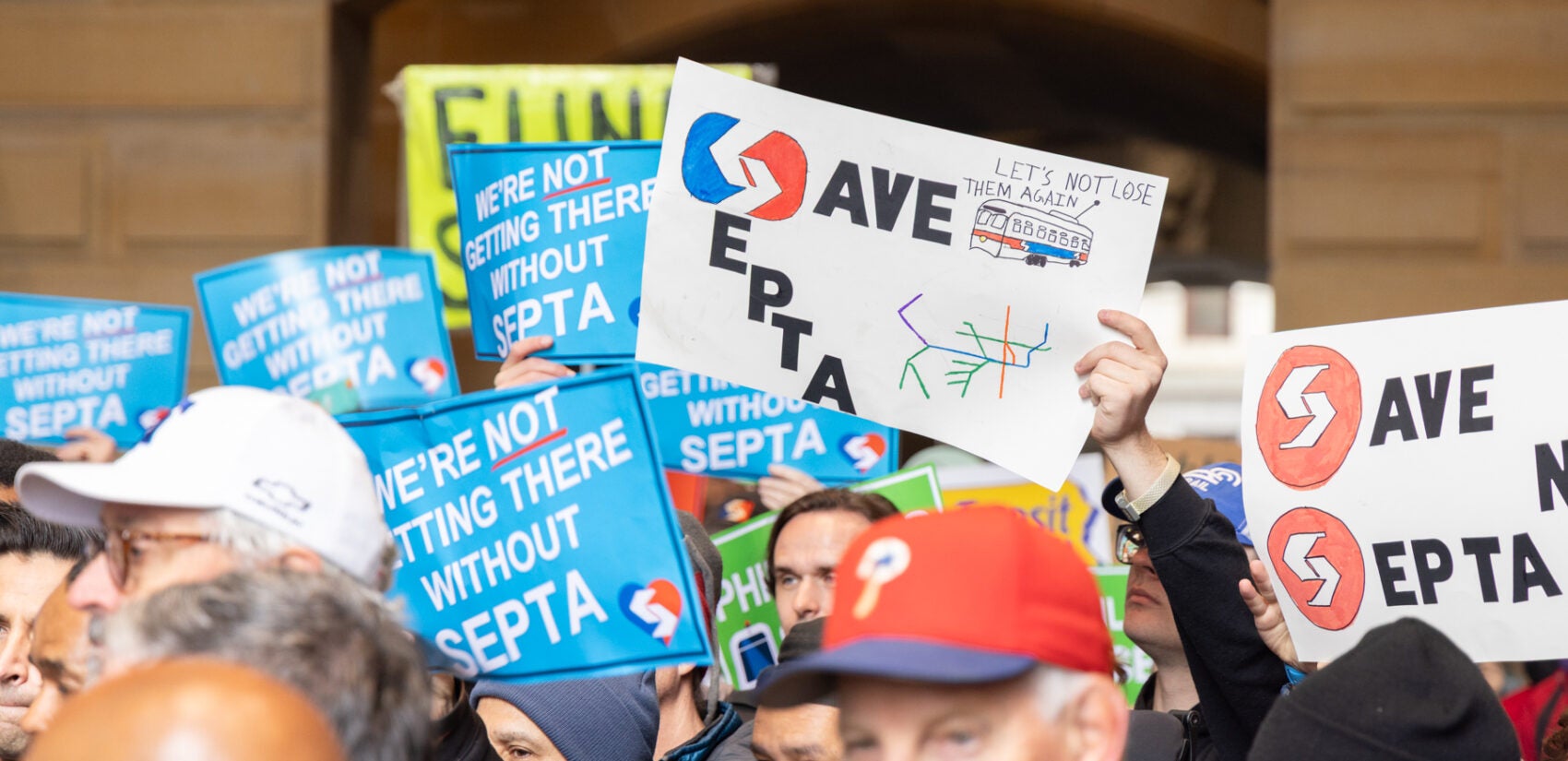
On Thursday, SEPTA unveiled a budget proposal to address a $213 million deficit, which includes a 45% reduction in service and a 21.5% fare increase. The plan would eliminate dozens of bus routes, shut down five Regional Rail lines and stop service at 9 p.m. on all rail services starting Jan. 1, 2026. Disabled riders would also be significantly affected, with 40,000 annual trips no longer served by SEPTA ACCESS and fares increased by 35%.
The rally underscored the role SEPTA, which serves nearly 800,000 riders daily, plays in the region’s economy and daily life. Speakers highlighted the disproportionate impact the proposed cuts would have on working-class communities, people with disabilities and those without alternative transportation options.
“The economic growth of Pennsylvania relies on the ability to build out a transportation network that puts tradespeople to work, strengthens our businesses and improves everyone’s quality of life,” said Pennsylvania Secretary of Transportation Mike Carroll.
Gov. Josh Shapiro has proposed allocating $168 million in state funding to support SEPTA, emphasizing that the cuts are “completely avoidable” with the passage of his transit funding plan. However, the proposal faces hurdles in the Republican-controlled state Senate, where leaders have expressed concerns about a growing statewide budget.
Shapiro and Democrats in Harrisburg have advocated for larger budget increases for SEPTA several times over the years and were able to pass a nearly 3% increase in the operating budget to $1.74 billion in the last state budget negotiations. However, even then SEPTA projected a $240 million deficit.
In November 2024, Gov. Shapiro reallocated $153 million in federal highway funds to support SEPTA, a move that drew criticism from Republican legislators. They contended that this reallocation could negatively impact highway projects in their constituencies and argued that the governor was not addressing the underlying financial issues facing mass transit systems.
“This burden should not be placed entirely on Pennsylvania taxpayers, most of whom do not live within the service region and do not realize any benefit from SEPTA,” Sen. Majority Leader Joe Pittman, R-Indiana, said Thursday.
At the rally, Carroll countered that Republicans were singling out the Democratic-led urban region and highlighted a lack of fairness and equity between Philadelphia and other parts of the state, noting that the Shapiro administration spent over $380 million in new funding for roads and bridges.
“Just like we repair and maintain bridges for commuters in rural and suburban communities, we owe it to the Pennsylvanians that live in our cities who take mass transit and make it available and reliable for them and their families,” he said.
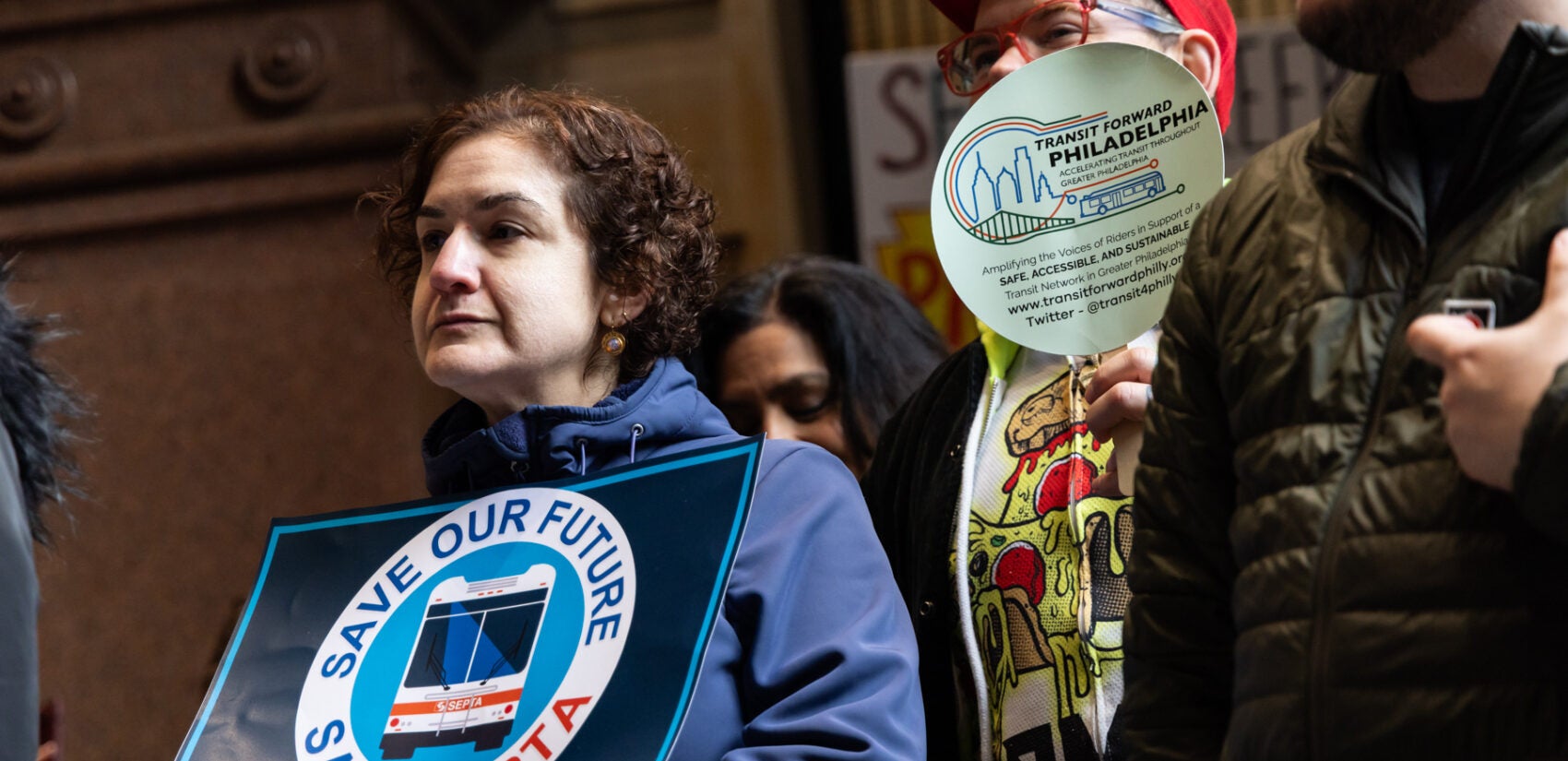
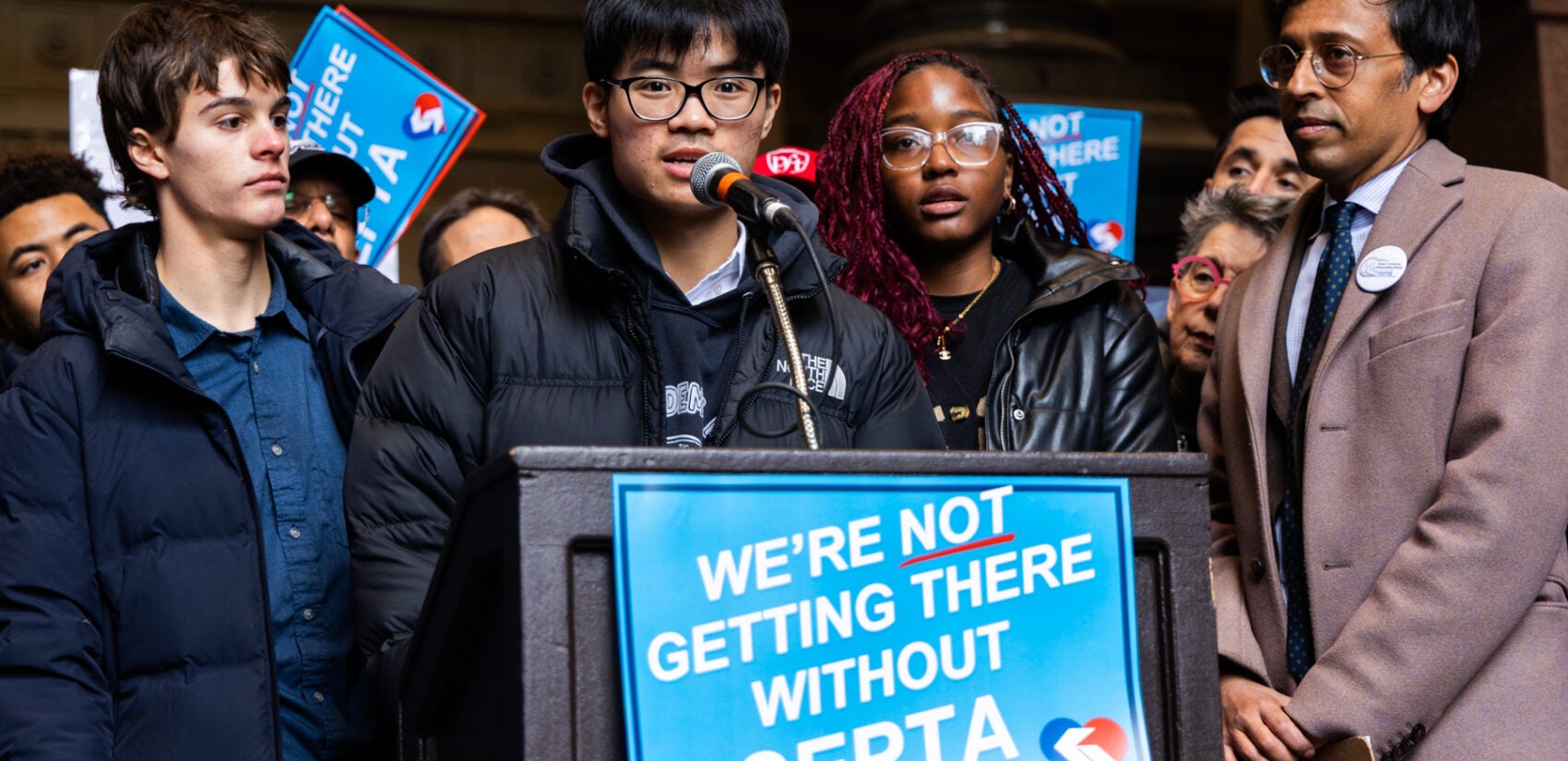
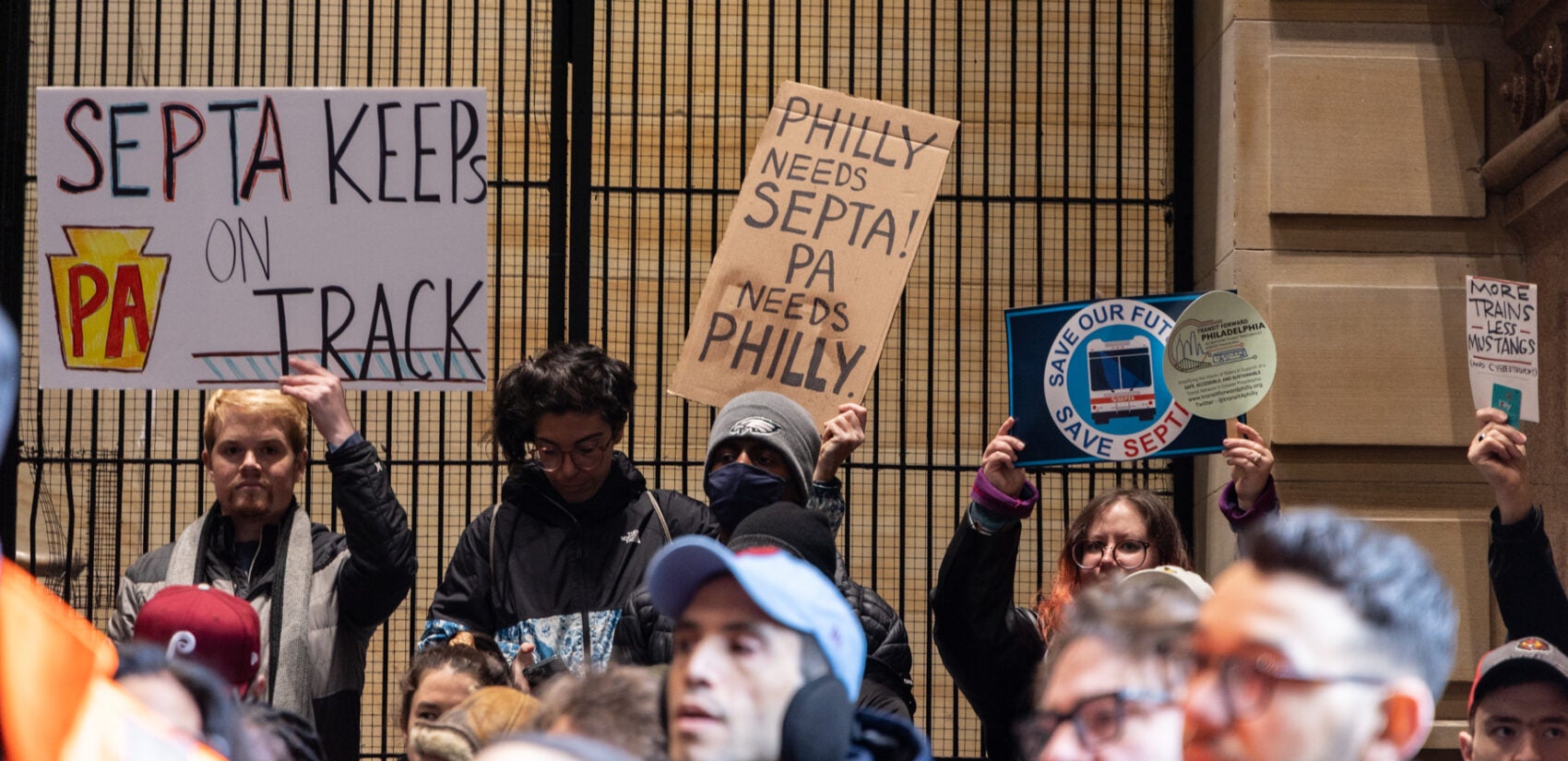
State Rep. Joe Hohenstein, D-Philadelphia, added that Pittman has a public transit system in his district, and that SEPTA benefits the rest of the state by contributing to the region’s economy.
“Every single county has transit,” he said, adding that SEPTA serves the greater region and not just the city. “Philadelphia is the engine of Pennsylvania. What happens in Philly doesn’t stay in Philly. It’s going to have an impact out. And that is why this isn’t just about SEPTA, it isn’t just about Philadelphia.”
Philadelphia City Council President Kenyatta Johnson noted the timing of the crisis, as the city is preparing for its upcoming semiquincentennial celebrations and role as a host of the 2026 FIFA World Cup.
“There’s no way, not on my watch, we are going to decimate the funding, but most importantly, the services, when the world will be here in the city of Philadelphia,” he said.
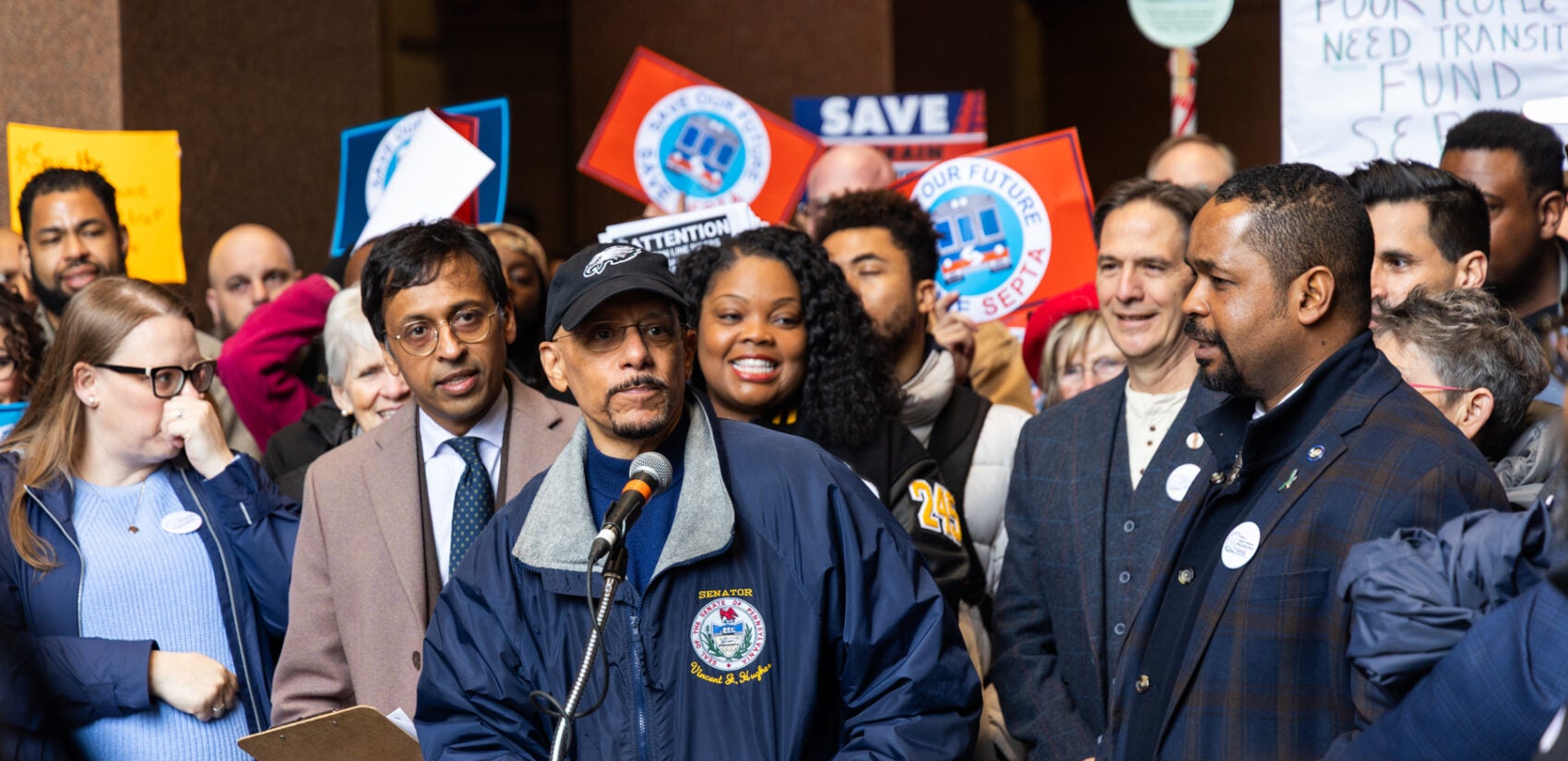
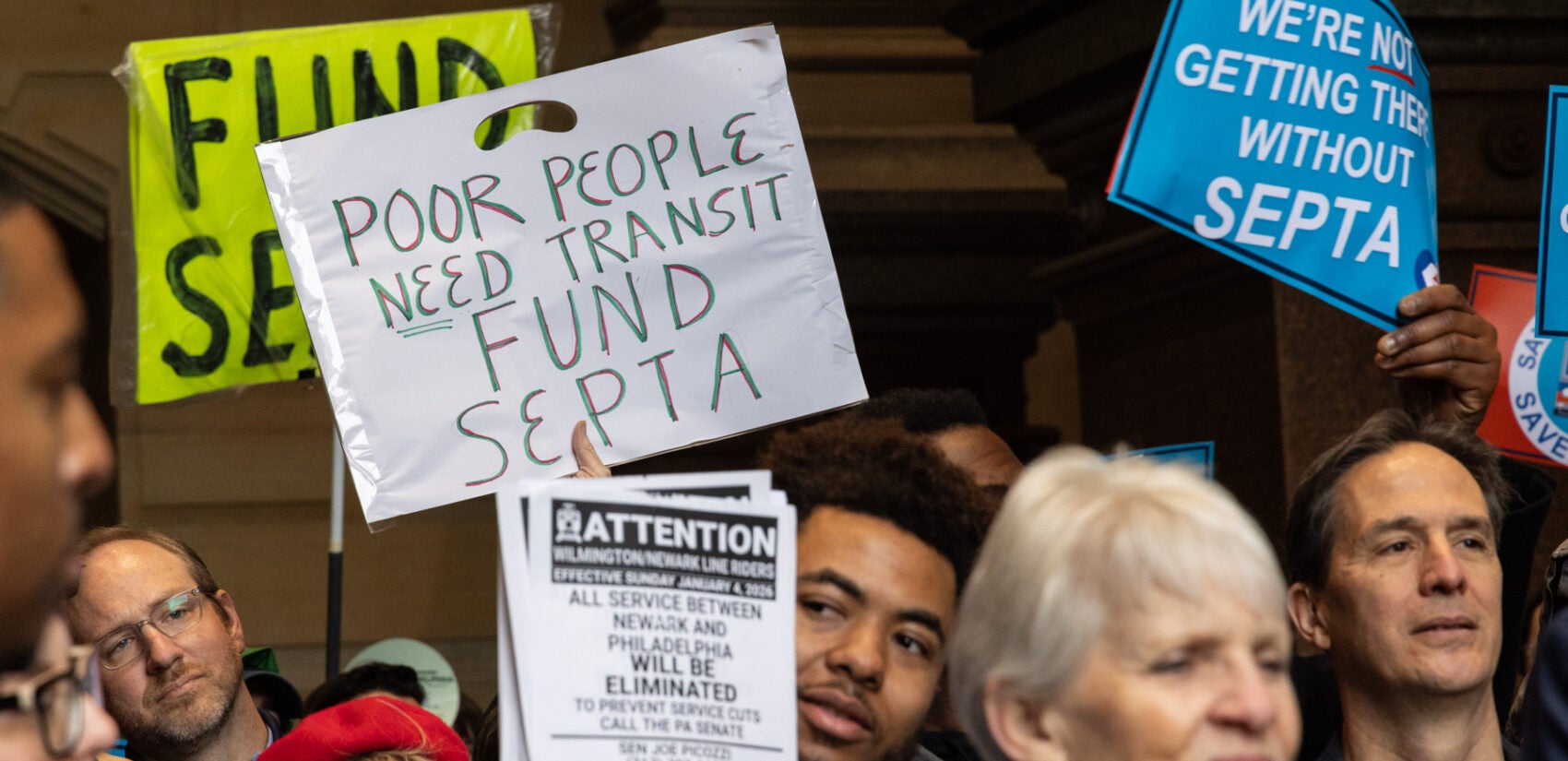
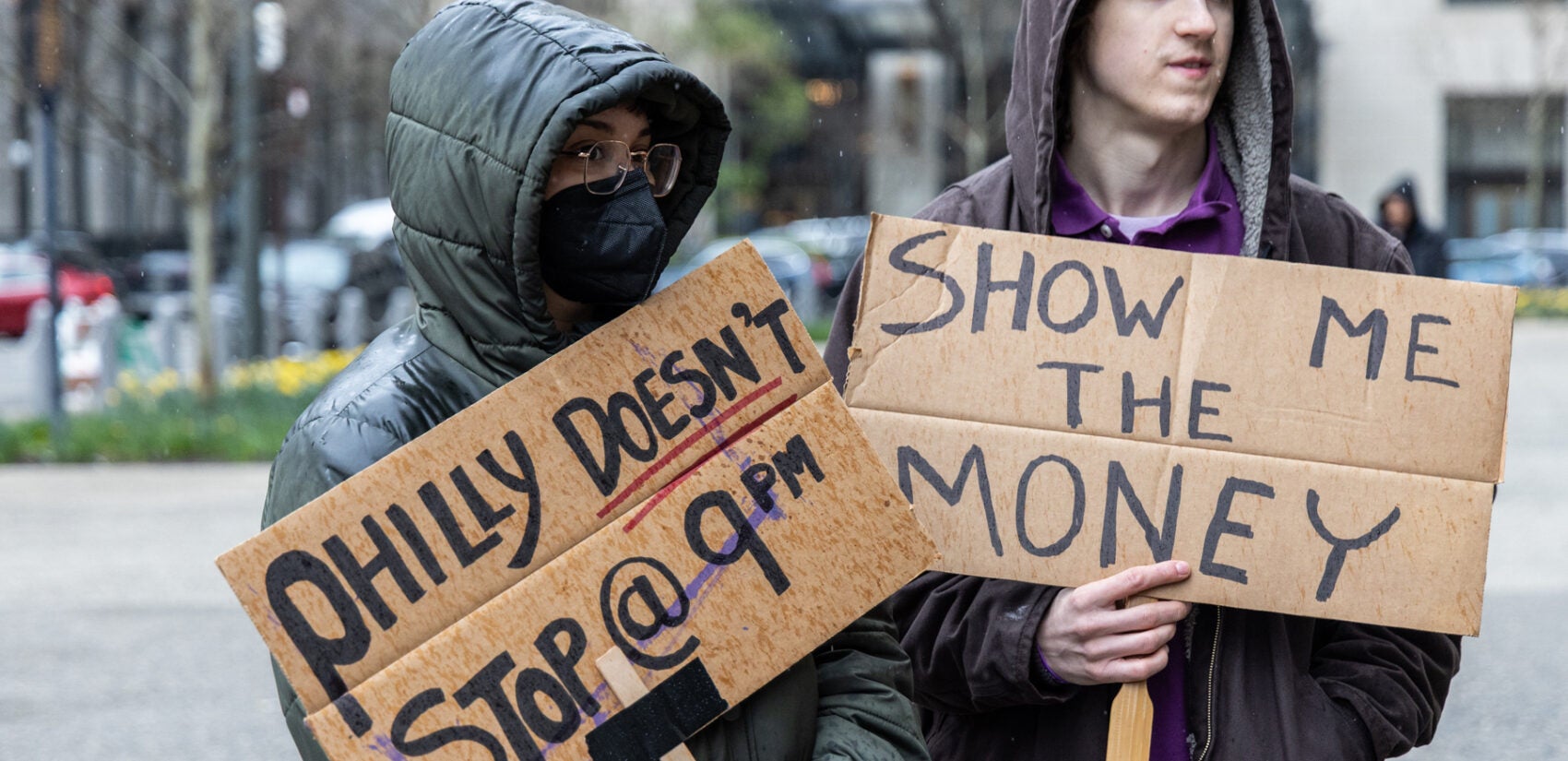
The rally, organized by Transit Forward Philadelphia and Transit 4 All PA!, also featured speeches from teachers, students, medical professionals and other everyday riders, all united in their call for increased state funding to avert what they call a looming “crisis.”
Students talked about missing extracurricular activities because of buses that were behind schedule or waiting in the middle of winter for the next one. Dr. Victoria Cimino talked about the different ways in which an underfunded public transportation system impacted her patients, who missed important medical appointments or couldn’t pick up prescriptions because of route disruptions.
“When we cut services to SEPTA, this disproportionately affects our most vulnerable patient populations,” Cimino said. “These are sick patients, our elderly patients, our physically disabled patients. These are your neighbors … your grandparents, your family.”
Public hearings on SEPTA’s proposed budget are scheduled for May 19 and May 20 at the agency’s headquarters in Center City, providing an opportunity for residents to voice their concerns.

Get daily updates from WHYY News!
WHYY is your source for fact-based, in-depth journalism and information. As a nonprofit organization, we rely on financial support from readers like you. Please give today.



